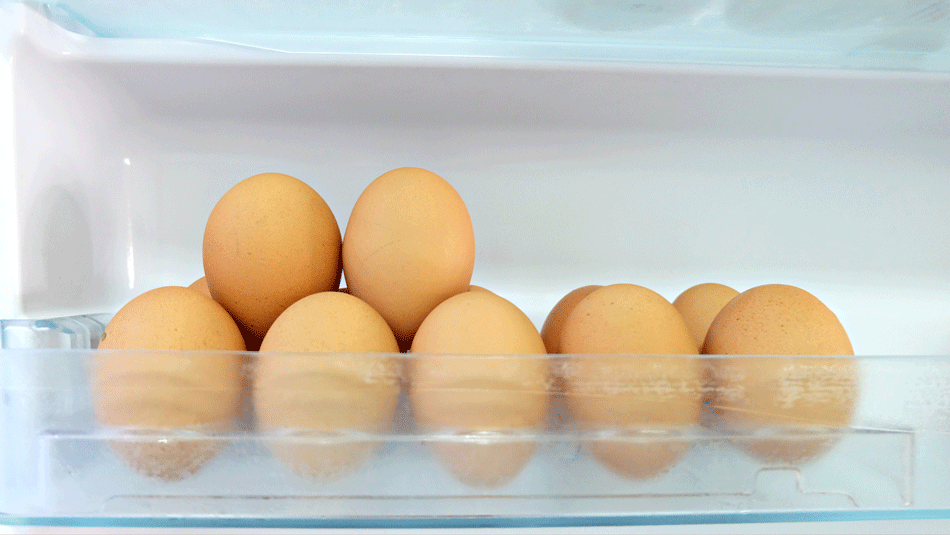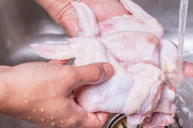In college, I lived in southern Spain for a few months as part of an exchange program. Most of my meals were provided, but from time to time I wandered the local stores to learn more about Spanish culture. The first time I visited the grocery store, I turned an aisle and was met with shock and confusion: hundreds of dozens of eggs were just sitting on the shelf, at room temperature, nowhere near refrigeration. I had to ask myself, what made the eggs in Europe different from American eggs? Why do we refrigerate eggs?
Videos by Wide Open Country
It boils down to one simple answer: egg washing.
Preventing Salmonella
Salmonella is a bacteria that lives in the intestines of many animals. It is perfectly safe in its normal environment, but it can cause serious illness if it leaves the intestines and enters the food supply.
Infection normally involves vomiting and diarrhea, but it can be more serious and cause death in the young, old, or those with weakened immune systems.
Salmonella is well connected with chickens, often infecting their ovaries and contaminating new yolks before their shells form. According to the FDA, cooking an egg can destroy the bacteria, but contaminated eggs are still responsible for causing 79,000 cases of food-borne illness each year, including 30 deaths.
In the US, salmonella is treated externally by washing eggs with soap and hot water. The US Department of Agriculture, along with other countries like Australia and Japan, determined that washing is a good preventative measure to avoid salmonella. The USDA requires all egg producers to put fresh eggs through a machine designed to prevent salmonella outbreaks and food poisoning.
Washing Eggs
Once the eggs are washed, we must refrigerate eggs. Unwashed eggs have a barely visible, protective coating around their outside. This coating protects the egg from damage by water or oxygen, and keeps the egg's porous shell from being susceptible to bad bacteria.
The washing process slightly damages the outer layer of the egg, which requires us to refrigerate eggs at all times. Keeping the egg under 42 degrees F protects it from allowing bad bacteria to pass through the egg shell. These cold eggs must be kept under refrigeration at all times of the supply chain, as any warming would cause them to sweat and grow mold.
Asia and most European countries (including the UK) determined that these side effects of washing can cause more harm than good, although Japan jumped on the washing board after a salmonella outbreak in 1990.
The European Difference
It's actually unlawful to wash eggs in Europe. While they had their own salmonella outbreak in the late 1990s, Europe decided that the damage to the shell caused by washing is a greater health risk than salmonella. Instead of washing, they determined that egg-laying hens should be vaccinated. Vaccination as a practice is not currently required by the U.S. Department of Agriculture and the FDA.
In addition to vaccination, the UK has taken a different approach to producing eggs. Their egg-laying hens roam free instead of being crammed in the large-scale laying houses that are common in America. They say this approach creates less dirty eggs, and when the eggs are cleaner they don't require washing. These unwashed eggs can be safely stored at room temperature without creating a risk to food safety.
The Pros and Cons of Refrigeration
https://www.instagram.com/p/BRHJE3BF22q/?tagged=farmeggs
Remember that porous shell that we talked about? In addition to letting in oxygen, it can also let in odors and flavors. If you store your eggs right next to a bowl of chopped onions, the egg will absorb those flavors.
Some baking recipes call for room-temperature eggs. Storing your eggs in the refrigerator will require you to think ahead when you're baking and remove the eggs to the counter an hour before baking.
Refrigeration isn't all bad. Eggs held under constant refrigeration have a longer shelf life than their room-temperature counterparts: 50 days vs 21 days. In addition to a longer shelf life, the egg itself maintains its quality and freshness for at least twice as long.
So Which Is Better?
It's really hard to say which yields better results, washing and refrigeration, or vaccination and storing at room temperature. They're both different approaches that achieve the same result: keeping the public safe from foodborne illnesses.
I know many backyard chicken farmers that don't wash their eggs. After eating dozens and dozens of them, I can't say that I have ever gotten sick. The key is to be consistent: if you receive refrigerated eggs, keep them cold. If you wash your eggs, throw them in the refrigerator.
And, the golden rule: If you are in any way unsure if you should refrigerate them or not, go ahead and do it. It won't harm the egg, but it can definitely protect you from harm.




